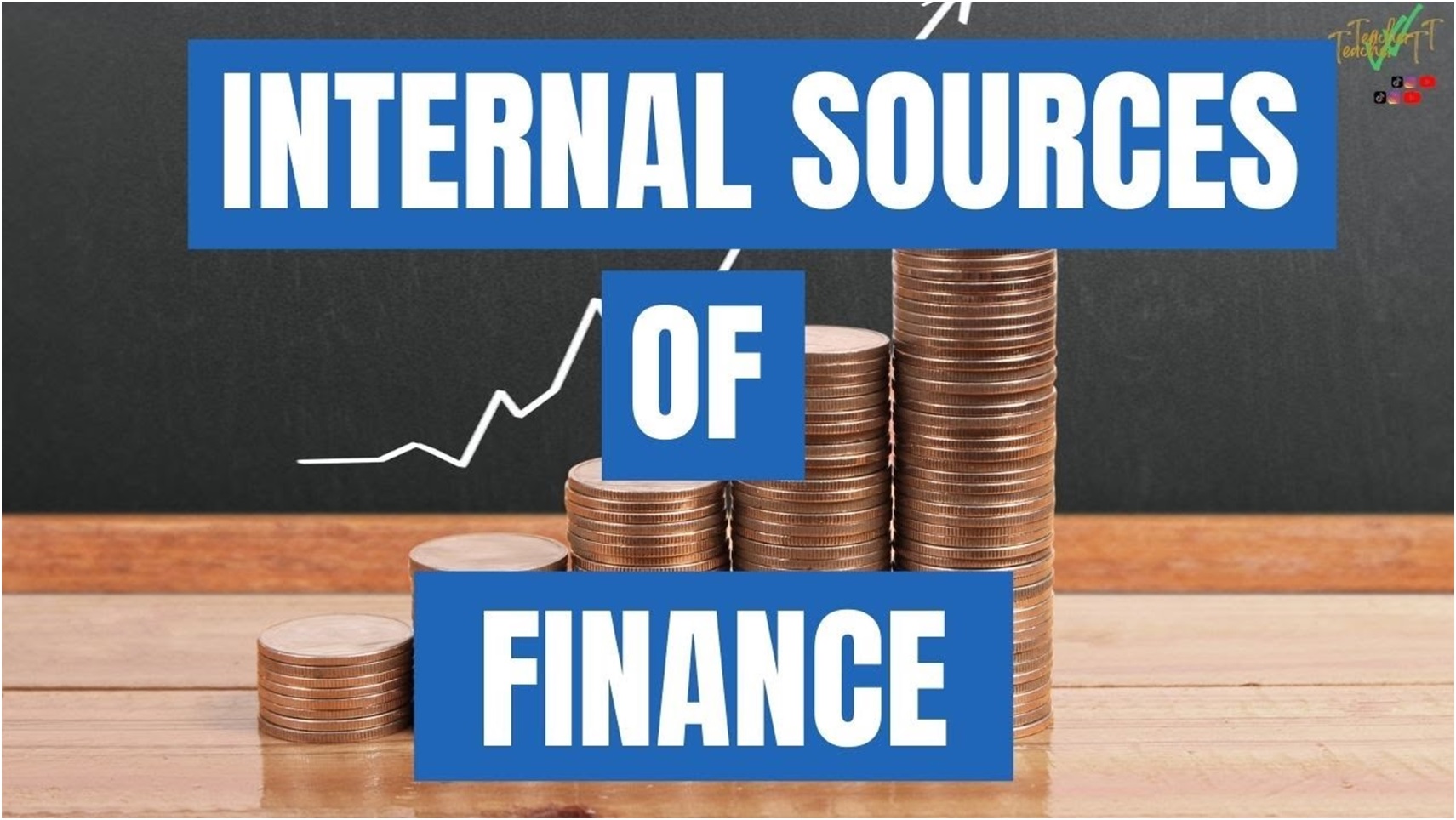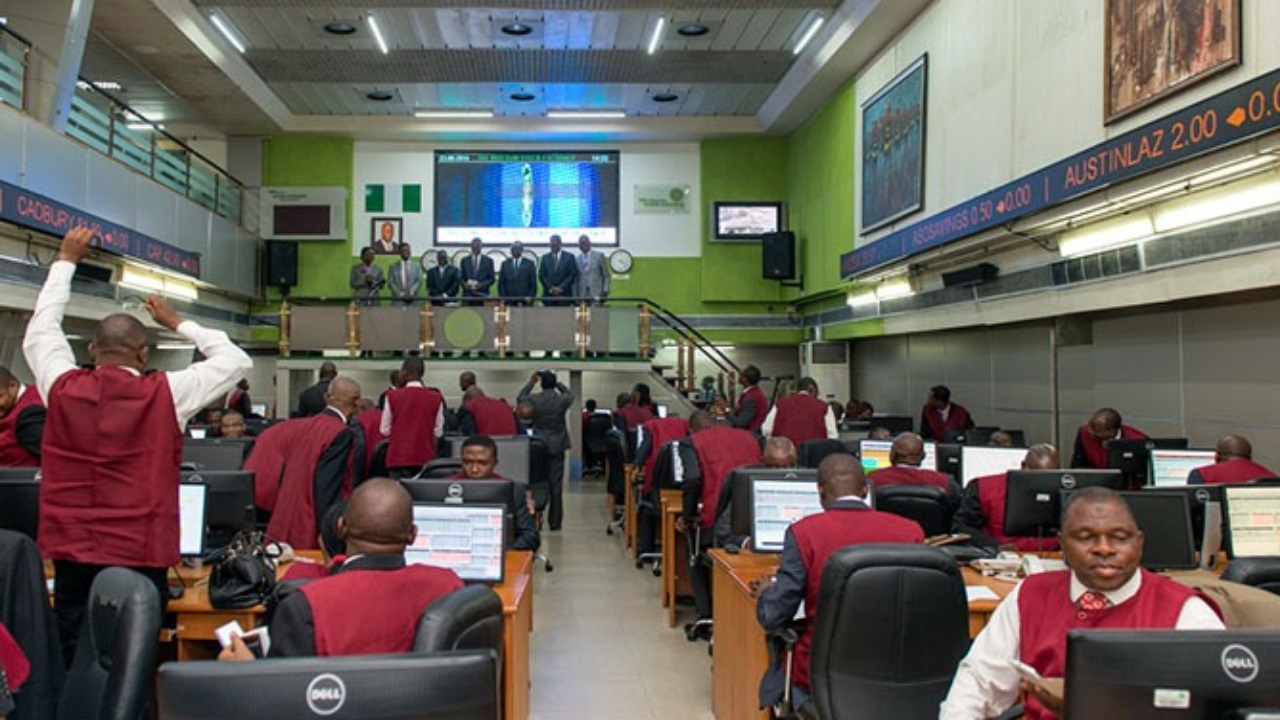Economy
Futures Pointing to Roughly Flat Open on Wall Street

By Investors Hub
The major U.S. index futures are pointing to a roughly flat opening on Monday, with stocks likely to show a lack of direction following the strong upward move seen last week.
Traders may be reluctant to make significant moves ahead of the release of quarterly financial results from a number of big-name companies this week.
Netflix (NFLX), Goldman Sachs (GS), Johnson & Johnson (JNJ), Morgan Stanley (MS), American Express (AXP), IBM Corp. (IBM), Microsoft (MSFT), and General Electric (GE) are among the companies due to report their results in the coming days.
Nonetheless, some buying interest may be generated in reaction to a report from the Commerce Department showing retail sales in the U.S. increased in line with economist estimates in the month of June.
After ending Thursday?s trading substantially higher, stocks turned in a relatively lackluster performance during trading on Friday. Despite the choppy trading, the Nasdaq hit a new record high and the S&P 500 reached its best closing level in five months.
The major averages fluctuated over the course of the session before closing modestly higher. The Dow rose 94.52 points or 0.4 percent to 25,019.41, the Nasdaq inched up 2.06 points or less than a tenth of a percent to 7,825.98 and the S&P 500 edged up 3.02 points or 0.1 percent to 2,801.31.
For the week, the Dow surged up by 2.3 percent, while the Nasdaq and the S&P 500 jumped by 1.8 percent and 1.5 percent, respectively.
The choppy trading on Wall Street came as traders seemed reluctant to make significant moves on the heels of the considerable volatility seen over the past few sessions.
Traders were also digesting mixed quarterly results from financial giants JPMorgan Chase (JPM), Citigroup (C) and Wells Fargo (WFC).
JPMorgan Chase ended the day moderately lower despite reporting second quarter results that exceeded expectations on both the top and bottom lines.
Meanwhile, shares of Wells Fargo showed a significant move to the downside after the bank reported second quarter earnings and revenues that came in below analyst estimates.
Citigroup also came under pressure after reporting better than expected second quarter earnings but on revenues that came in below expectations.
In U.S. economic news, the Federal Reserve delivered its semi-annual monetary policy to Congress, offering few surprises.
The Fed described economic growth in the first half of the year as solid and reiterated it expects further gradual increases in interest rates.
“The Federal Reserve remains positive on the U.S. economic outlook with barely any mention of the trade or yield curve worries that are preoccupying markets,” said James Knightley, Chief International Economist at ING.
Meanwhile, the University of Michigan released a report showing an unexpected decrease in consumer sentiment in the month of July due to concerns about potential impact of tariffs.
The preliminary report said the consumer sentiment index dipped to 97.1 in July from the final June reading of 98.2. Economists had expected the index to come in unchanged.
A separate report released by the Labor Department showed an unexpected decrease in import prices in the month of June but a slightly bigger than expected increase in export prices.
The Labor Department said import prices fell by 0.4 percent in June after climbing by an upwardly revised 0.9 percent in May.
The pullback surprised economists, who had expected import prices to inch up by 0.1 percent compared to the 0.6 percent increase originally reported for the previous month.
On the other hand, the report also said export prices rose by 0.3 percent in June following a 0.6 percent increase in May. Economists had expected export prices to edge up by 0.2 percent.
Most of the major sectors ended the day showing only modest moves, contributing to the lackluster close by the broader markets.
Energy stocks saw some strength amid a rebound by the price of crude oil, while weakness was visible in the telecom and banking sectors.
Economy
FG Insists on January 2026 Implementation of Tax Laws

By Modupe Gbadeyanka
The planned implementation of the new tax laws from Thursday, January 1, 2026, will not be reversed, the federal government has emphasised.
This emphasis was made amid controversies over discrepancies in the harmonised and gazetted copies of the laws.
A lawmaker in the House of Representatives, Mr Abdussamad Dasuki, raised this alarm last week during plenary.
He said parts of the laws passed by the National Assembly were different from the gazetted, calling on the leadership to look into this.
In June 2025, President Bola Tinubu signed the four tax-related bills in law as part of his government’s reform programme
The new tax laws are the Nigeria Revenue Service (Establishment) Act, the Joint Revenue Board of Nigeria (Establishment) Act, the Nigeria Tax Act, and the Nigeria Tax Administration Act.
Addressing newsmen after a meeting with Mr Tinubu in Lagos on Friday, the Chairman of the Presidential Committee on Fiscal Policy and Tax Reforms, Mr Taiwo Oyedele, stressed there were no plans to suspend the implementation of the laws from next Thursday, despite calls for this.
However, he welcomed the decision of the House of Representatives to investigate the matter, stressing that the federal government is ready to work with the National Assembly if any action becomes necessary, but maintained that the reform timeline remains unchanged.
Mr Oyedele explained that the reforms are aimed at providing relief to Nigerians and stimulating economic growth rather than generating immediate revenue, noting about 98 per cent of workers would either pay no personal income tax or pay less, while 97 per cent of small businesses would be exempted from corporate income tax and VAT withholding tax.
He added that large businesses would also benefit from lower effective tax rates, noting that the reforms are designed to promote inclusivity, shared prosperity and improved tax compliance.
The tax expert said preparations for the reforms began in October 2024 when the bills were first submitted to the National Assembly and have continued through capacity building, system upgrades and stakeholder sensitisation since the laws were signed in June 2025.
Economy
Looming Supply Glut, Ukraine Peace Deal Hope Weaken Oil Market

By Adedapo Adesanya
The oil market depreciated by more than 2 per cent on Friday as investors weighed a looming global supply glut, while also keeping an eye on a potential Ukraine peace deal.
Brent crude futures lost $1.60 or 2.57 per cent to trade at $60.64 per barrel and the US West Texas Intermediate (WTI) crude futures crumbled by $1.61 or 2.76 per cent to $56.74 a barrel.
The global oil supply next year will exceed demand by 3.84 million barrels per day, according to figures from the International Energy Administration (IEA) in its December oil market report.
Supply rose sharply this year boosted by output hikes from the Organization of the Petroleum Exporting Countries and allies (OPEC+) as well as growth in the United States and other producers. The group also paused output increases for the first quarter of 2026.
Meanwhile, OPEC kept its global demand growth forecast for year next unchanged in its monthly report, with its data indicating that world oil supply will match demand closely in 2026, in contrast to the IEA’s view.
While supply disruptions have helped oil prices rebound in recent sessions from their near five-year low, they are on track for their steepest annual decline since 2020. Brent and WTI are down 19 per cent and 21 per cent respectively on the year, as rising crude output caused concerns of an oil glut heading into next year.
Investors are watching for developments in the Russia-Ukraine peace process ahead of talks this weekend between Ukrainian President Volodymyr Zelenskiy and US President Donald Trump.
They will be focusing on the possible impact on future oil prices as a peace agreement could lead to the removal of international sanctions against Russia’s oil sector.
The Ukrainian president has said he would be willing to call a referendum on an agreed peace framework if Russia agrees to a ceasefire.
In Venezuela, the White House ordered the US military forces to focus on a “quarantine” of Venezuelan oil for at least the next two months, indicating the Trump administration is currently more interested in using economic rather than military means to pressure the South American OPEC member.
During the week, the American Petroleum Institute (API) estimated that crude oil inventories in the United States saw a build of 2.4 million barrels in the week ending December 19. Crude oil inventories data from the Energy Information Administration (EIA) will be released next week due to the Christmas holidays.
Economy
Sources of Business Finance in Nigeria: Types and Options

Finance may be the single most essential element when it comes to the progress and sustainability of businesses in Nigeria. The level of funding available to businesses, small and big, determines their ability to function, grow, and compete. The Nigerian business environment, due to the interplay between the local economy, financial institutions, government, and private investors, offers multiple financing opportunities. The dynamics of these financing opportunities helps business owners and managers make the right decisions that best respond to their objectives and the level of risk they are willing to take.
Start your Livescorebet registration and discover more as this article analyzes the different sources of business finance in Nigeria in a systematic and detailed manner. It defines and explains internal and external financing options and the criteria relevant businesses may use in their search for the best financing instrument.
Understanding Sources of Business Finance
Before one can delve into the different options of business financing available, it is important to define business finances and categorize it. The objective of this is to establish a foundation for understanding the extent to which some options may be more appropriate for different businesses than others.
What Are Sources of Finance?
Sources of finance are how a business acquires funds to begin activities, settle daily operations, or pay for additional business activities like acquisitions, expansions, and long-term projects. Businesses may need to finance the purchase of new equipment, hire and pay additional staff, manage business cash flow, develop new products, or finance the expenses required to enter or compete in new markets.
In Nigeria, the Sources of finance are determined by interest rates, availability of bank services, regulations, and the growth stage of capital markets, among other things. A business may use its own cash resources, borrow from a financial institution, receive funds from an investor, or receive a government grant or other government-funded assistance program. Each of these also offers different-related costs, obligations, and levels of control.
Types of Finance: Major Categories
Business finance is typically subdivided into two larger subsets: internal finance, and external finance. Internal finance is from the business and its resources; external finance is from third parties.
The classification of finance by time is also an option. Short-term finance is used for the working capital needs like inventory and operational expenses. Medium-term finance is used for the purchase of an asset like a machine. Long-term finance is used for significant investments like expansion or infrastructure. These classifications often overlap with internal and external sources and help a business structure their financing efficiently.
Key Principles and Examples
Cost is the most influential principle when it comes to the choice and method of utilizing finance. Aspects like interest and dividends affect profitability. Additionally, other opportunity costs must also be focused on. Another principle is risk. Increased borrowing equates to an increase in financial obligations. Control and flexibility are also essential, especially in terms of the original decision makers.
For instance, a small retail shop could potentially rely on the profits previously obtained to purchase stock and restock their shelf. On the other hand, a manufacturing business may need to obtain a bank loan in addition to leasing an arrangement in order to get the needed equipment. These principles must be understood so that finance can be used to support the objectives of the company.
Internal Sources of Business Finance
Internal sources of finance are the finance obtained within a business without the need of external lenders or investors. These sources are often preferred as with them, the business relies a minimal amount on external parties to minimize financial risk.

Retained Earnings
Profits that a company reinvests rather than giving out to owners or stockholders is called retained earnings. Within Nigeria, retained earnings is a common type of financing for SMEs that do not have access to external funding.
This type of financing is cost effective as it does not incur interest or have repayment schedules. Retained earnings financing ensures owners have complete operational control. However, retained earnings depend on profitability, meaning they can be limited or unavailable for new businesses or those that are struggling. Overreliance on retained earnings can also slow expansion if significant capital is needed for growth.
Ordinary (Equity) Shares
For incorporated businesses, it is understood that issuing ordinary shares is considered an internal source if funding is collected from existing owners/shareholders. When an owner nets additional funding, they are strengthening the business’ finances without taking on additional debt.
Equity shares do not have to be paid back, relieving some pressure from cash outflows. This does mean that ownership and profit rights, in the form of dividends, will be repealed. Equity financing in Nigeria is more prevalent in larger businesses and startups with growth potential, especially those that are preparing for future investment rounds or new public listings.
Other Internal Sources
The other internal sources include the streamlining of cash flows, the sale of unused assets, and the reduction of working capital. For instance, a business might dispose of old vehicles or equipment to obtain cash for more productive investments. Likewise, enhanced control of inventories and the speedy collection of receivables can liberate cash for other operational uses.
The techniques described here are often undervalued, especially since they provide short-term relief without incurring external liabilities. Nevertheless, the main limitation of these techniques is scale. They are unlikely to provide the necessary funds to sustain larger projects.
External Sources of Business Finance
External sources imply sourcing funds from outside the business. These sources are particularly necessary for new ventures and rapidly expanding businesses as well as for capital intensive industries.
Bank Lending
Bank lending is, and continues to be, a major source of business finance in Nigeria. Commercial banks, microfinance banks, and development finance institutions all grant businesses loans, overdrafts, and other credit facilities.
Bank loans are easier to obtain and can provide in a short time big amounts of money, making them more attractive for funding major business expansions and for acquisition of new assets. However, such loans are usually associated with a range of challenges such as high-interest rates and demands for strict repayment periods and collateral. Many Nigerian SMEs do not easily gain access to such bank credit due to their limited credit history and insufficient collateral.

Loan Stock
Loan stock is a long-term debt financial instrument provided by companies to obtain funding from customers and pays a fixed interest and is repaid after a determined time. In Nigeria debt stock is more prevalent with large established companies.
A loan stock has the benefit of providing long-term financing without losing partial company control. But the financial risk of the company rising during poor economic times increases, as loan interest rates must always be paid.
Venture Capital
Venture capital, funds provided by the investors of a business with the potential of high growth, is in exchange for equity. Venture capital in Nigeria is more common in technology, fintech, and agri-business.
Venture capitalists do not just provide funding; they also provide their experience in the field, their connections, as well as their planning and do-adding-knowledge, making it highly beneficial for new companies. However, these investors more often than not expect the high amounts of profit; therefore, a greater stake of their ownership of the valuable business is lost.
Leasing and Hire Purchase
Hire purchase and leasing, in asset financing, provide the means for firms to use equipment without the need to make the full payment for the equipment up front. Leasing allows the renting of a fixed-term asset, while hire purchase enables the attainment of the full ownership of the asset after making a series of payment installments.
These techniques are common in Nigeria for acquiring college textbooks, vehicles, office technology, etc. These techniques allow one to maintain positive cash flow, while avoiding large capital expenses. The main disadvantage is the total expenditure is higher than buying the item outright.
Government Assistance and Grants
The government of Nigeria, through its various agencies, has a wide range of funding programs aimed at supporting businesses, particularly for Small and Medium Enterprises (SMEs) and start-ups, which come in the form of grants, subsidised loans, and intervention funds.
When it comes to government assistance, there are lower interest rates for longer periods of time, more flexibility for the beneficiary. However, the availability of such assistance is often restricted, which is often accompanied by complex application procedures and lengthy delays. At the end of the day, although there is a lack of availability, government funding is still a major contributor to the country’s entrepreneurship base development and the economy’s overall growth.
Franchising
From a financing standpoint, franchising is a business model where an entrepreneur receives the right to operate a business under a specified brand for a fee or royalty. While it is not a direct cash resource, the model helps startup a business with lower risk and reduces the financing needed as it comes with brand recognition and an established business system.
In Nigeria, franchising is an approach that is widely adopted, particularly in the food services and hospitality industries. It is especially helpful to startups, as they do not need to build a business model from scratch, and if they need it, the franchising becomes a solid base for acquiring additional funds.
How to Choose the Right Source of Finance
How to choose the right Source of Finance will need balancing what the business needs, how much money is available, and the other goals they want to accomplish over time, since finance refers to how a business entity plans to raise funds from various sources of finance to support business operations and long-term business development.

Step-by-Step Approach to Choosing a Source of Finance
The first thing to do is say what the finance will go towards. Will it be designed to go towards working capital, purchasing raw materials, buying new assets like a new factory, or is it going to be used for expanding into new markets and securing capital for growth? After that, the company decides how much money it will need and how long it will need it for. This helps clarify whether the required sources of funds fall under short-term sources, often needed within one year, or long-term sources used to finance strategic investments.
The 3rd thing to do is to look at the advantages and disadvantages of each funding option, including risks and costs. Some of these will be interest payments, specific repayment terms, and whether financing involves debt or equity financing, which may dilute ownership or preserve the owner’s control. The business must assess if it will rely on borrowed funds, a secured loan, or equity capital, and whether it can manage repayment with interest, including principal and interest, without risking default or bankruptcy. In the end, the business should look at what it will be able to do and whether it should mix together a few main sources from various sources of finance to meet different business needs.
Factors Affecting the Need for Finance
There is a range of different reasons, that can affect the decisions that are made. Things like how big the business and what point in its lifecycle it’s at, which sector it’s in, and how stable its cash flow is. A new business is likely to need finance in the form of equity and government programs while an older company will likely go for a bank loan or use the money that is already in the company.
The economic climate will also have an influence on the cost and availability of finance in a certain country. Things like inflation and interest rates can make it more difficult to get finance in a certain country. Also the absence of certain regulations and the rules that have to be followed will affect what kind of external finance can be used or what type of external finance will be available.
Comparing Major Sources at a Glance
Internal sources lack scale but are less risky and cheaper. External sources are costly and more risky but can provide larger amounts. Equity financing is less risky in terms of repayments but ownership is diluted, while in debt financing, control is maintained but the risk is higher. Businesses need to understand these trade-offs to incorporate financing into their business strategy.
Conclusion
There are several sources of business finance in Nigeria, and these continue diversifying with the progress of the economy and the financial sector. Each of these sources, from internal such as retained earnings, to external like bank lending, government programs, and venture capital, are tailored to address specific business requirements.
This understanding enables entrepreneurs, managers to make accurate and timely decisions, mitigate risks, and facilitate growth. The optimal level of financing is more than a simple matter of availability as is often the case with entrepreneurs, but ensuring the financial architecture of the business is coherent with its objectives in the long term.
FAQs
What is the difference between internal and external sources of finance?
Internal sources are from the business itself like retained earnings and selling of assets, while external sources are from outside the business like banks, investors and government programs. Internal finance poses less risk, but external finance allows access to much larger funds.
How can startups access venture capital in Nigeria?
Accessing venture capital entails constructing sound business models, designing robust business plans, and then forming relationships with investors through incubators, accelerators, and other platforms. A clear organizational structure and the ability to catalyze substantial interest are invaluable.
What are the advantages of retained earnings as a source of finance?
The cost of retained earnings as a source of finance is low, as money does not need to be repaid. Furthermore, the business owner does not need to share control over the company. Retained earnings are also complementary to the financial position of the business. On the downside, retained earnings can only be used if a business is profitable, and may restrict growth if insufficient profits are generated.
How does leasing differ from hire purchase?
When leasing, a company can use an asset for a specified period of time, but ownership stays with the original owner. In hire purchase agreements, a business can use an asset for a specified time but takes ownership after making the required payment. A leasing agreement is flexible but hire purchase agreements are better for a purchase where an ownership is intended.
What government programs are available for business funding in Nigeria?
The Nigerian government, through its development finance institutions and government agencies, provides a wide range of activities, including lending to small and medium enterprises, offering intervention funds, as well as providing grants. These activities aim to support entrepreneurial activities, stimulate job creation, and develop specific sectors.
-

 Feature/OPED6 years ago
Feature/OPED6 years agoDavos was Different this year
-
Travel/Tourism9 years ago
Lagos Seals Western Lodge Hotel In Ikorodu
-

 Showbiz3 years ago
Showbiz3 years agoEstranged Lover Releases Videos of Empress Njamah Bathing
-

 Banking8 years ago
Banking8 years agoSort Codes of GTBank Branches in Nigeria
-

 Economy3 years ago
Economy3 years agoSubsidy Removal: CNG at N130 Per Litre Cheaper Than Petrol—IPMAN
-

 Banking3 years ago
Banking3 years agoFirst Bank Announces Planned Downtime
-

 Banking3 years ago
Banking3 years agoSort Codes of UBA Branches in Nigeria
-

 Sports3 years ago
Sports3 years agoHighest Paid Nigerian Footballer – How Much Do Nigerian Footballers Earn





















